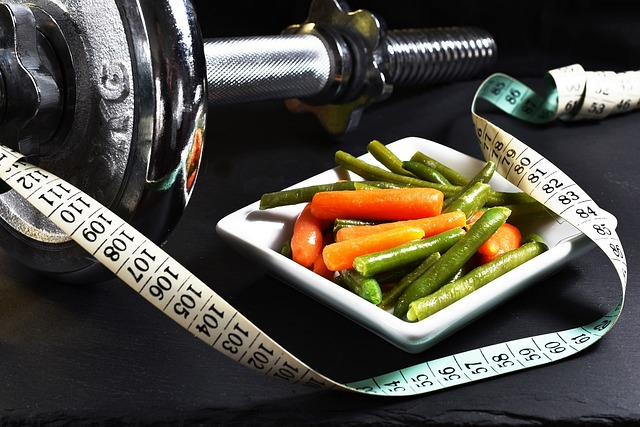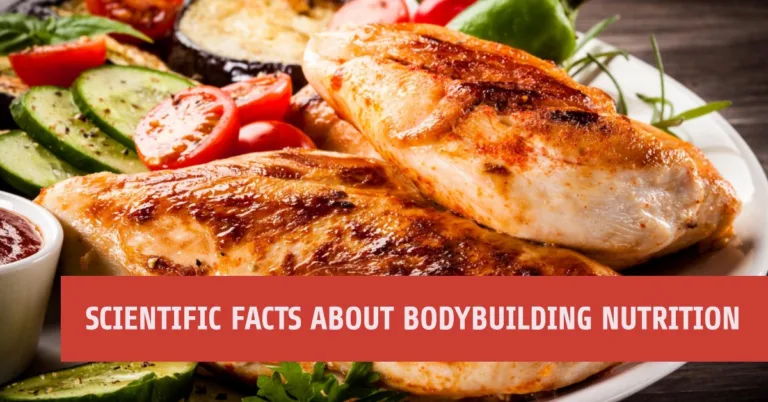Men Nutrition: Important nutrients and optimal healthy eating guide
Understanding men nutrition for eating a balanced and nutritious diet plays as essential part of any man’s lifestyle. However, some men may be missing out on important vitamins and minerals that are essential for good health. Learn what nutrients men need in their diet to ensure they maintain good health and stay looking great!
Protein: Building Block for Healthy Muscle
Men nutrition is essential for maintaining optimal health and build muscles. Protein is an essential nutrient for men, as it helps to build and repair muscle. It also helps keep bones strong and healthy, boosts immunity, and helps maintain a healthy weight. Good sources of protein for men include poultry, fish, eggs, lean cuts of meat and dairy products. Plant-based proteins like beans, nuts and seeds are also beneficial.
In addition to consuming enough protein, it’s important for men to also pay attention to the timing of their protein intake. Consuming protein both before and after a workout can help maximize muscle growth and repair. Pre-workout protein can help provide energy and prevent muscle breakdown during exercise, while post-workout protein can help replenish the body’s stores and aid in muscle recovery. Men should aim to consume 20-30 grams of protein per meal to optimize muscle building and repair.
How Much Protein Do Men Need?
The amount of protein a man needs can vary depending on their age, weight, activity level, and overall health. In general, the average man needs about 0.8 grams of protein per kilogram of body weight per day. Men nutrition is especially important for athletes and fitness enthusiasts, as it can improve performance and recovery. However, athletes and men who engage in regular strength training may need more, up to 1.2-1.7 grams of protein per kilogram of body weight per day. It’s also important to spread protein intake evenly throughout the day, rather than consuming most of it in one meal.
Protein Quality Matters
Proteins vary in quality, and this counts for optimum health. All of the necessary amino acids that the body requires to develop and repair muscles are present in high-quality proteins. High-quality proteins come from animal sources like meat, seafood and dairy; whereas plant sources like beans, nuts and seeds may contain fewer of some important amino acids that human body needs. However, it is possible to obtain all the necessary amino acids required for optimum health by combining various plant-based protein sources, such as beans and rice.
Calcium and Vitamin D: Essential men nutrition for Bone Health and Muscle Function.
Calcium is an essential nutrient for men, as it helps to maintain strong bones and healthy teeth. It is also involved in muscle contractions throughout the body and helps nerves transmit signals. Aside from dairy, other great sources of calcium are leafy green vegetables like kale, broccoli and cabbage, nuts, tofu, beans and fish with soft bones like salmon and sardines. Eating a balanced diet is crucial for men nutrition, as it provides the necessary nutrients for the body.In addition to food sources of calcium, taking a supplement can help ensure that you are meeting your daily requirement.
How to Get Enough Vitamin D for Strong Bones and Muscles
Another important aspect of maintaining strong bones and muscles is getting enough vitamin D. This vitamin helps your body absorb calcium, making it an essential nutrient to pair with calcium intake. Vitamin D can be obtained through exposure to sunlight, but it can also be found in foods such as fatty fish like salmon, tuna, and mackerel, as well as fortified foods like milk, orange juice, and cereal.
In addition to getting enough calcium and vitamin D in your diet, weight-bearing exercises such as weightlifting, running, and jumping can help maintain and increase bone density. It’s important to note that smoking and excessive alcohol consumption can have negative effects on bone health, so limiting or avoiding these habits can also contribute to maintaining healthy bones and muscles.
Iron: Boosts Stamina and Oxygenates Blood Cells.
Iron is an essential mineral that helps the body transport oxygen in the bloodstream. It plays a key role in helping create energy and boost your overall strength and stamina. Lean meats, poultry and fish are the best sources of iron, but vegetarians or vegans can also get enough by consuming dark leafy greens, nuts, dried fruits and beans. Eating foods that are rich in vitamin C, such as citrus fruits, will help your body absorb iron from plant-based sources more effectively.
Red Meat – A Good Source of Iron for Men’s Health
Red meat is a good source of iron, which is essential for men’s health. A single serving of beef or lamb can provide up to half of the daily recommended amount of iron. However, it’s important to choose lean cuts and limit your intake to a few servings per week, as excessive consumption of red meat has been linked to increased risk of heart disease and certain cancers.
Eating a balanced diet that includes a variety of iron-rich foods, such as lean meats, fish, poultry, beans, nuts, and dark leafy greens, can help ensure you are getting enough iron to support your stamina and overall health.
Omega-3 Fatty Acids: Essential For Heart Health and Mood Regulation.
Omega-3 fatty acids are essential for good health. The two main types of omega-3s, EPA and DHA, are integral components of cell membranes throughout the body. These fatty acids affect the function of the cell receptors in these membranes. Omega-3 fatty acids have been linked to a lower risk of heart disease, improved cognitive functioning and better mood regulation. The best source is cold water fish like salmon and tuna, but vegans can get sufficient amounts from flaxseed oil, walnuts, pumpkin seeds and chia seeds.
Plant-Based Sources of Omega-3 Fatty Acids:
While cold water fish are a great source of omega-3 fatty acids, but everyone cannot consume fish or wants to rely on it as their sole source of this essential nutrient. Fortunately, there are several plant-based sources of omega-3 that can be easily incorporated into a healthy diet. These include chia seeds, flaxseeds, hemp seeds and walnuts. Vegans and vegetarians can benefit greatly from these sources, which can help improve their overall health and reduce their risk of heart disease.
Supplements for Omega-3 Fatty Acids:
For some individuals, consuming enough omega-3 fatty acids through their diet alone may not be feasible or practical. In such cases, omega-3 supplements can be a good option to help meet the recommended intake of this essential nutrient. Fish oil supplements are a popular choice, but it’s important to choose a reputable brand to ensure purity and safety. There are also vegan-friendly options available, such as algae-based supplements, which can provide the same benefits as fish oil without the risk of mercury or other contaminants.
Balancing Omega-3 and Omega-6 Fatty Acids:
Omega-3 fatty acids are important for men nutrition and good health, however it is important to remember that they should be taken in moderation alongside omega-6. Both of these kinds of fatty acids are necessary for good health, but consuming too much omega-6 can result in inflammation and increase the risk of chronic diseases. It is advised to limit the consumption of processed and fried foods, which are high in omega-6. Instead concentrate more on consuming a range of whole, nutrient-dense foods, having both omega-3 and omega-6 in moderation, in order to maintain a healthy balanced diet.

Carbohydrates: Fuel for Energy and Muscle Building
The body uses carbohydrates as its main fuel supplyas they provide energy for a variety of tasks. Additionally, carbohydrates offer the fuel required for muscular growth. They are converted by the body into glucose, which fuels both anaerobic and aerobic activity.
The Importance of Choosing the Right Carbohydrates for Optimal Health and Performance
The correct carbohydrates must be chosen for optimum health and performance even though they are necessary for men nutrition. The body absorbs simple carbohydrates like refined sugars rapidly, which can result in blood sugar spikes, energy crashes, and weight gain. Complex carbohydrates, on the other hand, are digested more gradually and offer a consistent supply of energy and vital nutrients. Examples include whole grains, fruits, and vegetables. These carbs also contain fiber, which is crucial for regulating blood sugar levels and preserving digestive health.
The Role of Carbohydrates in Weight Management
Carbohydrates can also play a role in weight management, as the body needs them for energy instead of storing them as fat. It is, however, important to consume the right amount of carbohydrates based on your individual needs and daily activitiies. Consuming too many carbohydrates can lead to weight gain, while consuming too few can result in fatigue and muscle loss.
The Benefits of Timing Carbohydrate Intake Around Workouts
Timing your carbohydrate intake around workouts can also enhance performance and aid in muscle building. Consuming carbohydrates before a workout can provide the necessary energy for an intense session, while consuming them after a workout can help replenish glycogen stores and aid in muscle recovery. It’s important to choose carbohydrates with a high glycemic index before a workout, such as fruit or white rice, for quick energy. After a workout, it’s best to consume carbohydrates with a lower glycemic index, such as sweet potatoes or quinoa, for sustained energy and muscle recovery.
Zinc: Vital for Testosterone Production and Immune System Function
Zinc is vital for the production of testosterone, an important hormone responsible for sexual development and muscle growth. It is also needed to maintain a healthy male reproductive system. In addition, zinc is essential for the proper functioning of the immune system. Furthermore, for the proper development and functioning of the cells, wound healing and tissue regeneration, zinc plays a vital role.
Food Sources of Zinc for Optimal Testosterone and Immune System Health
Men need to get enough zinc in their diets to maintain healthy immune systems and optimum levels of testosterone. Oysters, beef, poultry, beans, nuts, and whole grains are healthy providers of zinc. It is important for vegans and vegetarians to eat zinc-rich plant foods like whole cereals, legumes, and nuts and seeds. In addition, fortified foods like breakfast cereals can offer substantial zinc amounts.
The Role of Zinc in Enhancing Athletic Performance
Men nutrition can impact sexual health and performance, making it important to consume adequate nutrients. Zinc can improve athletic performance in addition to its part in testosterone production and immune system health. ATP, the main energy source for muscle contractions during activity, is produced with the help of zinc. The synthesis of muscle proteins, which is necessary for muscle development and repair, is another function of zinc. According to research, athletes who take zinc supplements can see changes in their muscular endurance and strength.
The Importance of Zinc for Men’s Mental Health
Men nutrition can also benefit mental health, as certain nutrients have been linked to improved mood and cognitive function. Zinc is an mineral important for men’s mental health. Clinical studies have shown that zinc deficiency is associated with depression and anxiety, and that supplementing with zinc can improve symptoms of these ailments. Zinc is involved in the regulation of neurotransmitters, which are the chemicals in the brain that are responsible for mood and behavior. Additionally, zinc is a powerful antioxidant that can protect the brain from oxidative stress which is a factor in the development of many mental health disorders.
Vitamin B12: Important for Nervous System Health and Red Blood Cell Production
Vitamins are essential for men nutrition as they promote overall health and prevent illnesses.Vitamin B12 helps in the production red blood cell, health maintenance, and proper functioning of the nervous system. It helps the body’s ability to turn lipids, proteins, and carbs into energy. Additionally, it helps with the production of fatty acids and enzymes. Lack of vitamin B12 can result in nerve problems, anemia, fatigue and abnormal cell growth and development.
Food Sources of Vitamin B12 for Men
To meet their daily requirements, men should include food sources that are high in vitamin B12 in their diet . Animal-based foods are the best sources of vitamin B12, including meat, poultry, fish, eggs and dairy products. Men who follow a vegetarian or vegan diet can obtain vitamin B12 from fortified cereals, plant-based milks, and nutritional yeast. Supplements can also be taken to ensure adequate intake of Vitamin B12.
Symptoms of Vitamin B12 Deficiency in Men
Vitamin B12 deficiency can have significant effects on men’s health. Common symptoms of a deficiency include fatigue, weakness, anemia, and neurological problems such as numbness and tingling in the hands and feet, difficulty walking, and memory loss. Long-term deficiency can lead to irreversible neurological damage. Men who experience these symptoms should speak with a healthcare professional to determine if a vitamin B12 deficiency is the cause and to receive proper treatment.
Final Words:
Men nutrition should focus on consuming lean protein, whole grains, fruits, and vegetables to maintain a healthy weight.. Excellent sources of protein for constructing and maintaining healthy muscle mass include lean meat and poultry. Calcium and vitamin D are crucial nutrients for maintaining strong bones and healthy musculature. Iron is necessary to oxygenate blood cells and increase energy levels. Omega-3 fatty acids are crucial for heart health and emotional regulation, while carbohydrates give you energy and help you build muscle. Zinc is necessary for red blood cell production and immune system health, while vitamin B12 is necessary for neurological health and testosterone creation.
Do you know that in addition to these essential nutrients , it is important to consider other nutrients such as fiber, which supports digestive health and weight management and antioxidants?
Read more about What is the recommended fiber intake for your age/gender?








